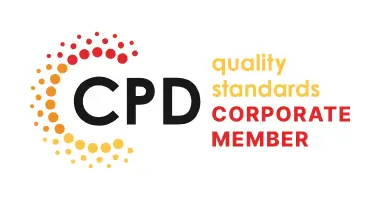
Wondering how to become fluent in a European language? Whether you want to improve your cognitive abilities or stand out in the job market with your bilingual skills, the tips in this blog will help you reach your language learning goals. From French and German to Spanish or any other European language, these tips apply to your language learning journey.
Table of Contents
Why learn a language?
How to learn another language fast? Before exploring how to learn a language quickly, let’s first consider why learning European languages is essential. You’ll be happy to know that there are many exciting perks to learning European languages. Let’s dive in:
More business opportunities
To excel in today’s global business landscape, bridging cultural and linguistic gaps is crucial. This sets you apart from your peers and opens up new market avenues. Again, your ability to speak European languages can be helpful since there’s a growing need for bilingual individuals in various industries, including banking, marketing, and other sectors. Moreover, it can improve your chances of working abroad.
Stronger cognitive functions
Learning a second language is a powerful cognitive exercise to keep your brain sharp and healthy. Moreover, it improves your creative abilities, problem-solving skills, and multitasking potential. To sum up, being bilingual is a smart investment in your memory, cognitive functions, and career.
Better social life
One of the most rewarding aspects of learning a European language is the cultural insight it provides. You can connect with a diverse range of people and strengthen your relationships with native speakers.
Enjoyable Travel
Finally, learning European languages makes travelling much more pleasant and comfortable. For instance, you can get around different European countries, read signs, understand directions and communicate with locals. Besides, it improves your cultural understanding and makes you a global citizen.
But what is fluency?
Fluency is when you can communicate easily, with correct pronunciation and without relying on your native language. However, achieving fluency varies from person to person. For some people, developing fluency in a second language may take years. For others, it can be a matter of months.
So, how to learn a language by yourself? There are many language courses available online that can help you develop fluency. You can choose a wide range of European language courses offered by SkillUp and learn from the comfort of your home. The courses are affordable and convenient. You can learn many things, including the main languages in Europe, many vocabulary words and phrases, the European language 7 letters, the European history of people and so much more.
How To Learn A Language Fluently? Expert tips to learn European Languages
Mastering a new language requires the right approach and dedication. Here are expert tips based on Gabriel Wyner’sWyner’s proven 4-Step Method to achieve fluency in a new language:
#1 Get used to your target language’s pronunciation first
The first step is to understand the sounds of your target language clearly. Your brain and ears are wired to the sounds of your native language, which makes learning foreign words more challenging. Therefore, start by training your ears to recognise your target language’s pronunciation to make learning new vocabulary more effortless and enduring.
An excellent way to do this is by using minimal pair tests—words that sound similar in the language, like “mass” and ” moss.” Practising with these pairs helps train your brain and ears to identify the differences, and you’ll notice progress in just a few weeks.
#2 Use flashcards with images to learn vocabulary
Flashcards are an excellent learning tool, helping you learn new information and vocabulary quickly and efficiently. However, try to refrain from direct translations when learning a new language. Although a popular approach to learning words and phrases in a new language, it can be ineffective and lead to quick forgetfulness. Instead, flashcards with images on one side and foreign words on the other help retain vocabulary more effectively. This is because images make stronger connections with words, making them easy to understand and hard to forget.
#3 Grasp all things grammar in context
Studying grammar in a new language may seem difficult. Don’t stress about it too much. Instead, let your brain naturally absorb grammar patterns and rules as you progress through your learning process.
By using flashcards, you can learn grammar through sentences, primarily if you use sentences that are relevant to you. Generally, personalised content is far more engaging than generic phrases, making learning much more enjoyable and helping grammar rules stick longer.
#4 Practice speaking as much as you can
How to become fluent in a language? Speaking is highly important to improve your language fluency. Once you’ve built some vocabulary and grammar, practice with native speakers as much as possible.
You can connect with native speakers through online language exchanges or community programs. Alternatively, consider a language tutor for the additional benefit of learning from someone skilled in European language teaching.
#5 Consume media in your target language
Once you feel ready and confident, engage in media in your target language. Whether it’s Netflix, podcasts, music, or YouTube videos, listening to native speakers will work wonders for your pronunciation, vocabulary, and grammar.
#6 Read, write, repeat!
Next, improve your grammar by reading short stories and novels in the most spoken languages in EU. So, how do you become fluent in a language? You can start with former magazines and newspapers first, gradually moving to novels and longer forms of writing. There are also engaging texts like exercise workbooks and games like crossword puzzles that you can try if you love challenges.
#7 Surround yourself with the language
If you’re really looking for the fastest way to learn another language, you can go to a place where native speakers live. For instance, you can live in Germany, a populous European country, where they speak German, one of the EU’s official languages. This is one of the best ways to learn a language faster.
Not everyone can hop on a plane to improve their linguistic fluency. Luckily, there are plenty of ways to surround yourself with the most spoken languages in Europe without leaving your favourite city. Here are a few simple ideas:
– Place flashcards around your home, labelling everyday objects in your target language.
– Change the language settings on your electronics to the official languages in the EU you’re studying.
– Join a language exchange with native speakers.
– Volunteer in places where native speakers gather and speak languages of the EU.
Conclusion
Learning a new language helps you become culturally more open. It improves your communication skills and career prospects. With these tips, you’ll be one step closer to fluency and reaching your European language goals.
FAQ: How to Become Fluent in a European Language: Quick Tips
1. Who are the Europeans?
Europeans are people who come from Europe, a continent made up of diverse nations and cultures. They are typically citizens of European countries, such as France, Germany, Spain, and Italy.
2. How many languages are spoken in Europe?
How many languages in EU? There are over 200 languages spoken across Europe, though many are regional or minority languages.
3. What is the largest country in Europe continent by land area?
Russia is the biggest country in Europe by area. Although it spans both Europe and Asia, the European part of Russia is the largest, covering over 3.9 million square kilometres.
4. Which country has the biggest population Europe?
What is the biggest country in Europe by population? Russia has the largest population in Europe, with over 140 million people. Although a significant portion of its population lives in the Asian part of the country, the European part remains the most densely populated.
5. What is the European language tree?
The European language tree shows the relationships between various languages spoken in Europe, with major branches including Indo-European, Uralic, and Turkic languages.
6. Most commonly spoken language in Europe - What is the most spoken language in Europe?
Wondering what is the most common language spoken in Europe? Due to the large number of speakers in Russia, Russian is the largest spoken language in Europe. It spans both Europe and Asia. However, if we’rewe’re looking at the European Union official languages specifically, English is the most widely spoken second language.
7. What are the Indo European languages?
Indo-European languages are a large family of languages that include English, Spanish, Russian, Hindi, and many others spoken across Europe and parts of Asia.
8. Where does the Latin language originate?
Latin originated in the region around Rome, in what is now Italy, and was the language of the Roman Empire.
9. What are the top 20 most spoken languages in Europe?
The top 20 most spoken languages in Europe are:
1. Russian
2. German
3. English
4. French
5. Italian
6. Spanish
7. Polish
8. Ukrainian
9. Romanian
10. Dutch
11. Greek
12. Czech
13. Hungarian
14. Portuguese
15. Swedish
16. Bulgarian
17. Serbian
18. Danish
19. Finnish
20. Slovak
10. Which country speaks English in Europe? English speaking countries Europe.
Which Europe country speak english? The United Kingdom is the primary Europe country English speaking, where English is the official language. Moreover, there are European countries speaking English, like Ireland, though Irish (Gaelic) is the first official language there. So, which european countries speak English? There are many other countries in EU that speak English as a second language, including the Netherlands, Sweden, Denmark, Finland, and Norway.
11. What languages spoken in Germany?
Germany’s official language is German. However, there are also minority EU languages spoken in some regions, including Frisian, Sorbian, and Romani. English is widely spoken as a second language, particularly in urban areas and among younger generations.
12. What language they speak in France?
The official language spoken in France is French.
13. What is the language family including French and Spanish?
French and Spanish are part of the Romance language family, which evolved from Latin.
14. What language do they speak in Slovenia?
The official language of Slovenia is Slovene (or Slovenian). It is a South Slavic language, and while Slovene is the primary language, many people also speak English, Italian, and Hungarian in certain regions.
15. What language they speak in Hungary?
The official language spoken in Hungary is Hungarian, a unique language not related to most other European languages.
16. What language is spoken in Spain?
The official language of Spain is Spanish (Castilian), but other regional languages such as Catalan, Galician, and Basque are also spoken.
17. What language is spoken in Amsterdam?
The official language spoken in Amsterdam is Dutch, though English is widely understood and spoken.
18. What are the main languages in Poland?
The main language spoken in Poland is Polish, though minority languages like Kashubian and Silesian are also spoken.
19. What are the Eastern European countries?
The list of Eastern European countries typically includes Poland, Hungary, the Czech Republic, Slovakia, Romania, Bulgaria, Ukraine, Belarus, and the Baltic States (Estonia, Latvia, and Lithuania). Some definitions also include countries from the former Yugoslavia and the Balkans region.










